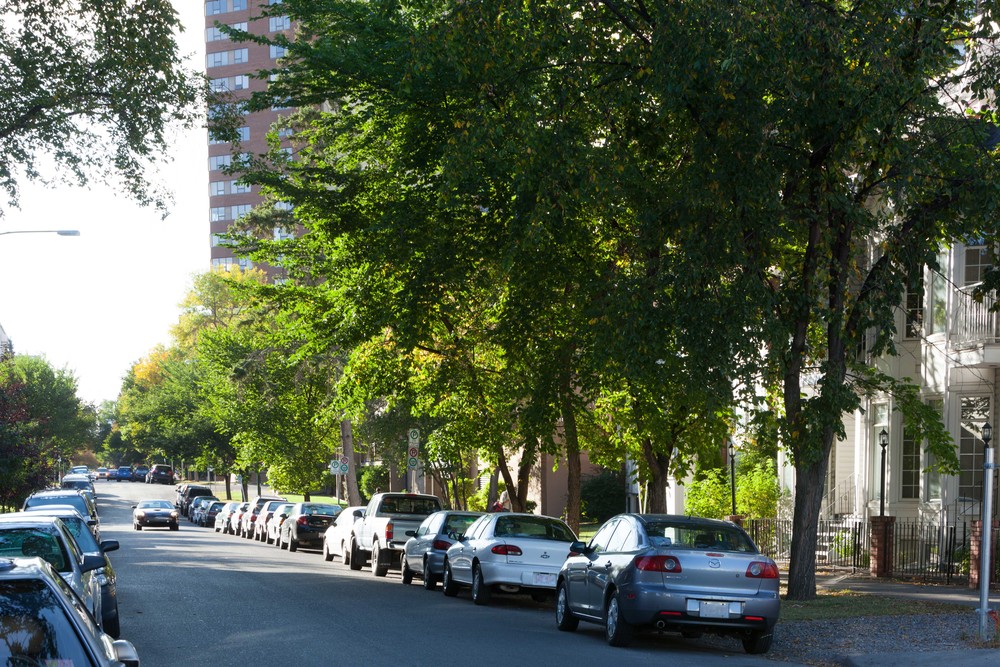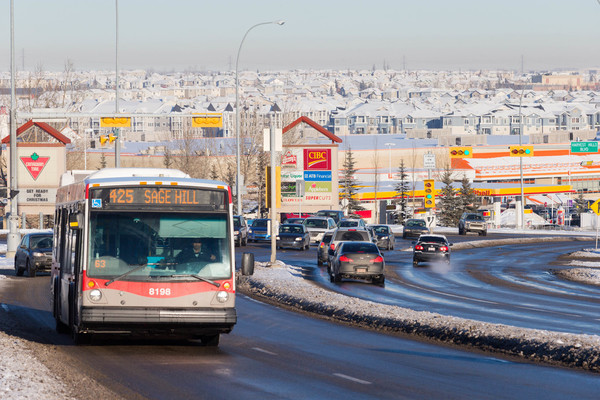Streets plan and budget
Our streets connect people and places throughout Calgary. We drive, walk, cycle and ride every day to and from work or school, for social or recreational activities, and to move goods and services. Streets provide critical access for emergency services and rights-of-way for all underground and overhead utilities.
We provide space for on-street parking which supports businesses and residential users. We also support The City's efforts to reduce greenhouse gas emissions.
Streets are Calgary's most abundant public space, and we support nearly every service The City of Calgary provides to Calgarians.
Our customers
- Streets are used by the public and businesses, including freight, emergency services, and services such as Public Transit and Waste & Recycling. Private and public utilities run overhead or underground infrastructure on our rights-of-way.
- Street space is also used by businesses as a work space; to meet and host festivals and special events.
Our partners
- The traveling public
- Alberta Transportation
- Developers
- The construction industry
- The goods movement industry
- The community
- Business associations
- Calgary Police Service
Value to Calgarians
- provides a safe, well planned, and maintained street network that adapts to change, and allows for predictable travel
- strives to provide pavement surfaces that are smooth, clear in winter and clean in summer, clearly marked, and well-lit at night
- provides traffic signals and other controls required for safe and effective traffic management through intersections and enable the safe interaction of different users of the space.
- ensures well-signed speed zones, road rules, and wayfinding
- influences travel, drives the economy, enables the transport of goods, supports future growth and allow special road use such as those requested through street-related permits.
What we deliver
- Streets infrastructure includes planning, building and maintenance of streets and alleys, bridges, traffic signals and other controls that provide safe and efficient travel
- Our street lights support safe activity throughout the day.
- Programs such as Snow and Ice Control and Spring Clean-up allow people and goods to move freely and safely throughout the city.
Budget breakdown
Operating and capital budgets explained
The budgets you see here are expenditures net of recoveries.
The City develops two budgets to create impact aligned with Council’s Strategic Direction:
- The four-year (2023-2026) operating plans and budgets
- The five-year (2023-2027+) capital plans and budgets
The operating budget includes revenues, recoveries and spending related to ongoing operations. These include:
- Salaries, wages and benefits.
- Day to day programs, maintenance and services.
- Administration costs (e.g., insurance).
- Fuel
- Utilities
- Capital financing costs.
The City's total net operating budget is zero. This means we budget to collect the revenue needed to deliver services to Calgarians — no more, no less. We collect this revenue through property taxes and other sources.
The capital budget pays for long-lived assets. These provide the foundation for the services Calgarians rely on. They include:
- Maintenance of current infrastructure (e.g., bridges, buildings and playgrounds).
- Upgrades to existing community infrastructure.
- New infrastructure to provide services in areas that are underserved (e.g., Green Line).
- New infrastructure for growing areas of the city.
Learn more about our 2023-2026 Service Plans and Budgets.
See how the budget has been adjusted since November 2022
Measuring performance
We are measuring our performance in five areas. Each value is the goal we expect to reach by 2026.

What we've heard
Citizen Satisfaction Surveys consistently show that infrastructure, traffic, and roads networks are important to Calgarians. Calgarians rated several activities with high importance, low satisfaction and an increased willingness to invest: in snow removal, road maintenance, pothole repairs, and traffic flow management. The Fall 2021 Citizen Satisfaction Survey shows high satisfaction with the Spring Clean-up program (92 per cent) and the City's overall operation of roads and infrastructure (85 per cent). However, satisfaction is lower for snow and ice control (68 per cent), pothole repairs (70 per cent) and traffic flow management (77 per cent).
Although we rank high compared to major cities in Canada, survey results indicate the need to continue to invest in our infrastructure, traffic assets and roads networks to continue to build a prosperous and accessible city.
What we're watching
- Expectations of Calgarians are changing as demographics and behaviors evolve. As city growth continues to drive network expansion, our goal is to continue to connect communities. We monitor and adjust to trends that impact delivery of our streets service to best align with the evolving needs of our city.
- Trends we monitor include an increasing focus on safety, the impact and frequency of severe weather events, further enabling non-mobility uses (e.g. street patios, pop-up parks), as well as transparency and speed of internal and external processes.
- We focus on innovation, continuous improvement and changes in emerging technologies such as snow removal lumebots which enable new approaches to street maintenance.
- We are introducing innovative solutions in our rights-of-way such as roadside naturalization and low CO2 concrete mixtures.
- We use data to drive our decisions and continue to collect a wide range of data to support decision-making for future investments and improvements.

Our initiatives
What we plan to do
The Streets service is committed to providing an accessible mobility network for all people. Our service focuses on safety, environmental sustainability, the voice of Calgarians, innovation, improvement, modernizing technology, data-driven decisions and supporting Council's strategic direction.
How we're going to get there
- Enhance safety and accessibility of the mobility network by promoting safety-related processes, procedures and communication, and by installing ramps and related infrastructure.
- Maintain safe workspaces while delivering services to Calgarians by establishing employee safety enhancements to support staff with safety meetings, and techniques and guidelines for incorporating safety-based awareness and thinking in day-to-day tasks and activities.
- Promote actions that encourage transportation mode changes such as from driving to walking or the use of transit and vice-versa through participation in transportation mode projects, activities and collaborations with other workgroups or partners.
- Expand employee training, awareness and learning opportunities regarding respect in the workplace, diversity and inclusion, and code of conduct through encouraged participation in City-specific learning and development programs, team communications, internal courses and employee-centered discussions.
- Enable opportunities for positive economic and environmental impacts by determining strategies and mechanisms to reduce travel hours within specified or peak travel periods.

